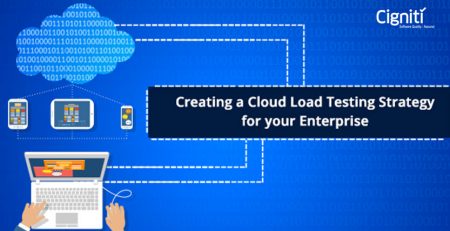How can you successfully Stress Test your Retail solutions?
Food for the appetite, apparel for the style, home decor for a lifestyle. You name it, they got it!
The retail sector has been venturing into every aspect of human existence to accessorize it in any possible way. With the ongoing boom in eCommerce and m-commerce sector, the retail industry has not missed out on any potential wish from the consumers.
Over the last decade, the retail industry has been trending through phases that hover around – changing customer preferences, growing popularity of m-commerce, creating meaningful experiences, customizing consumer experience, and ensuring constant innovation. While these are the opportunity zones, these are even the challenging areas that the sector has been dealing with.
With adoption of Digital Transformation, a lot of focus has been placed on personalization of customer experience by enhancing online user journeys. This helps retailers to quantify the improvements and track the growth in sales on an average. Nevertheless, the challenges sustain and continue to crack into the profits of retailers even today.
The challenges posed by Digital Technologies are cutting into the opportunities extended by Digital Transformation. So, how can the global retail sector Stress Test its solutions and ensure continuous profitability?
How can the Retail sector Stress Test its IT-based Solutions for the customers?
A report published by Deloitte ‘Global Powers of Retailing 2018’ states, “Across the retail industry, disruption of traditional business models has given way to unprecedented and transformative change—change required online and offline to better serve more demanding shoppers and redefining customer experience. Innovations and transformations are happening faster and at a greater magnitude than ever, presenting challenges for retailers accustomed to balancing conventional performance metrics like growth, profitability, and space productivity.”
The skill is to make the Digital Technologies work for your business needs and enhance your business value. Multiple applications and digital interfaces are needed to ensure that the business keeps rolling smoothly. Software glitches and IT fiascos in the past have emphasized the need for Quality Assurance and Software Testing in the Retail sector. When it comes to testing for business-critical applications for robustness, these are some key factors to consider.
Load Test your applications
Performance Testing and Load Testing is the best way to diagnose issues with an application that can endanger its performance during varying traffic conditions. Load Testing helps to identify the issues by creating spurts in online traffic and testing the application’s performance and capability to deal with the load. This is very much critical for ecommerce applications dealing with heavy loads during Big Sale Days.
Stretching the limits of the application is important to build confidence in the capabilities of the application. There are tools that can help to automate the process during the Software Development Cycle.
Build a relevant Digital Assurance strategy
A robust and relevant Digital Assurance strategy can take you a long way in ensuring that your Digital Transformation initiatives are working and giving you results. Practices such as Continuous Testing and Continuous Development ensure that your application is well-assessed for seamless delivery and sustainability. Hence, it is critical that IT teams supporting retail operations and applications must focus on building a well-suited Digital Assurance and Testing strategy for their business.
Application Security Testing
Cybersecurity threats are looming over any industry that chooses to take the digital route and offer innovative services to their customers. Security Testing is a strategic decision and has a strong role to play in the retail sector. Today, even brick and mortar stores have a digital interface and offer an online interface to their customers. In times of crisis or breach, this can result in monetary as well as reputation loss.
Application Security Testing is an important step that retailers must consider to ensure that there are no gaps within their business applications. The Security Testing strategy will completely depend on the priorities and business objectives of the enterprise. Some retailers might need it for their customer facing applications, while some might need it for their Point of Sale (PoS) machines.
Ensure Omni-Channel Experience
The idea of Digital Transformation is to provide enhanced experience to the customers at every level. Whether it is at the store or via an application, it is important to ensure unanimous experience across every platform. A potent combination of Performance Testing, Functional Testing, and Regression Testing can ensure that the applications and software are working as expected. Omni-Channel experience is absolutely critical in the retail sector, else, it can result in chaos and business loss.
Test Automation for Continuous Improvement
Innovation and continuous enhancement is needed to keep up the progress in the retail sector and stay profitable. This cannot be possible without Continuous Testing and Development, which is impossible without automating the tests. Test Automation enables teams to confirm the expected results from the application. This not only helps to accelerate the testing activity, but also enables teams to bring down the testing efforts.
Additionally, Test Automation is needed to maximize the test coverage, ensuring that every aspect of the application is tested for quality, speed, and flawless performance.
Our take in the Retail industry
Cigniti leverages its existing test automation framework and reusable assets to improve test automation coverage, process & project assets, quality and productivity of the overall application. The framework supports execution on multiple environments/platform, facilitates reusability, and reduces the cost of maintenance.
While delivering Test Automation services for a leading Retail Solutions provider we could provide some key benefits. We ensured transparency and agility in the outcome-based delivery model by providing deliverables as per business priority on a weekly basis. We helped the client to decrease test automation development time with the help of Cigniti’s Test Automation Acceleration Kit. Notably, we could substantially increase the automation coverage and bring down the script failure rate.
Connect with our experts in the retail sector to optimize your QA and Testing efforts.





Leave a Reply